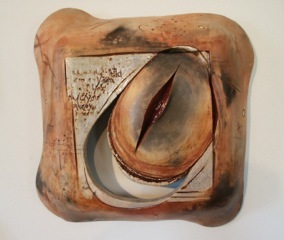The centerpiece of the American culture of death is a taboo that inhibits our ability to encounter the territory of dying, death and bereavement with wisdom, competency and discernment. We are acculturated to fear and resist death. However, this inhibition also deprives us of some of the greatest intimacy, tenderness and depth of connection available in the human experience.
Our culture sanitizes dying and death, not only by diverting our attention to the technological medical gymnastics that just might avert death's approach, but by juxtaposing death to life as though one is inherently bad and the other intrinsically good. We live in a polarity consciousness of good versus bad, right versus wrong, rather than both/and. While there is a place for optimism, there is also a place for reality where death is concerned.
All too often we flee into the illusionary safety of denial rather than accepting that we, or one we love, is dying. Under the influence of the death taboo, we are far more likely to enter the room of a dying loved one with a cheerful "your color looks good today, honey," than to express our unbridled truth of, "I think you are dying and I'm scared and don't want to lose you."
We assume the truth would be too unbearable. Under the guise of protecting one another (or perhaps ourselves) we silently comply with the overriding belief that it is better not to give voice to death. However, when we don't tell the truth to each other about death's presence, we buy into a kind of dishonesty that contaminates our relationship and fosters a gulf of separation and isolation even between the most loving partners.
Why underestimate each other? What if the other person doesn't want to be protected? What if our statements of false hope, intended to protect the other person from our truth, instead tell them that we can't handle the truth? What if that prevents them from fulfilling their need to draw closer, in deference to our apparent inability to cope? What if buying into our fear is depriving us of a depth of loving we have never known before? What if this is our last chance to bridge a gap between us, to make room for greater honesty and intimacy? What if this is our last chance for forgiveness or learning about truths previously withheld that will die with our loved one? What if a brave step into the vulnerable land of honesty in the face of death would open the door to unimaginable treasures?
How sad to live in a lie at the end of one's life. How sad to risk regrets, not realizing the blessings that come with the alternative -- a depth of intimacy that we may never have experienced before and that will never be available again.
Being vulnerable at these times and willing to go where we have never been before allows us to be of service to one another in handling unfinished business such as saying goodbyes, extending or asking for forgiveness, letting go of secrets, asking for answers, expressing our love, putting our affairs in order and tending to whatever we feel the need to attend to before death comes. I remember how my mother and I consciously embraced her dying process by giving each other the freedom to express whatever was present for us. We drew our hearts together rather than letting a wall of withholding come between us. We had profound conversations about the meaning of life and death and our respective beliefs about God. She filled in the blanks about pieces of her history that never quite made sense to me. She told me what mattered to her most and whom she wanted to see. I got to know dimensions of her that I never noticed before. We dropped all masks and pretenses and shared an intimacy we had never broached before in those final months. I am so bountiful with her love and was left with no regrets.
Sadly, if the approach of death is not acknowledged then the dying and his or her loved ones are denied access to the very resources, such as Hospice care, that can provide maximum physical and emotional comfort. Hospice and palliative care workers are skilled in supporting and mentoring us through to the end of life, showing us the path to the very wisdom, competency and discernment that our death taboo stifles in us. Ironically, there are blessings at death's door that are only available to those who accept death's presence. So, don't be afraid to touch death -- enter this territory with your heart wide open and partake of the full range of its sweetness and its sorrow, its wisdom and its blessings.
Please feel free to leave a comment below or to email me.
If you would like to suggest a topic for a future blog or ask me to address a particular situation or issue, please email at the address above and I will see what I can do.
To learn more about me, visit my website.
For more by Judith Johnson, click here.
For more on death and dying, click here.
